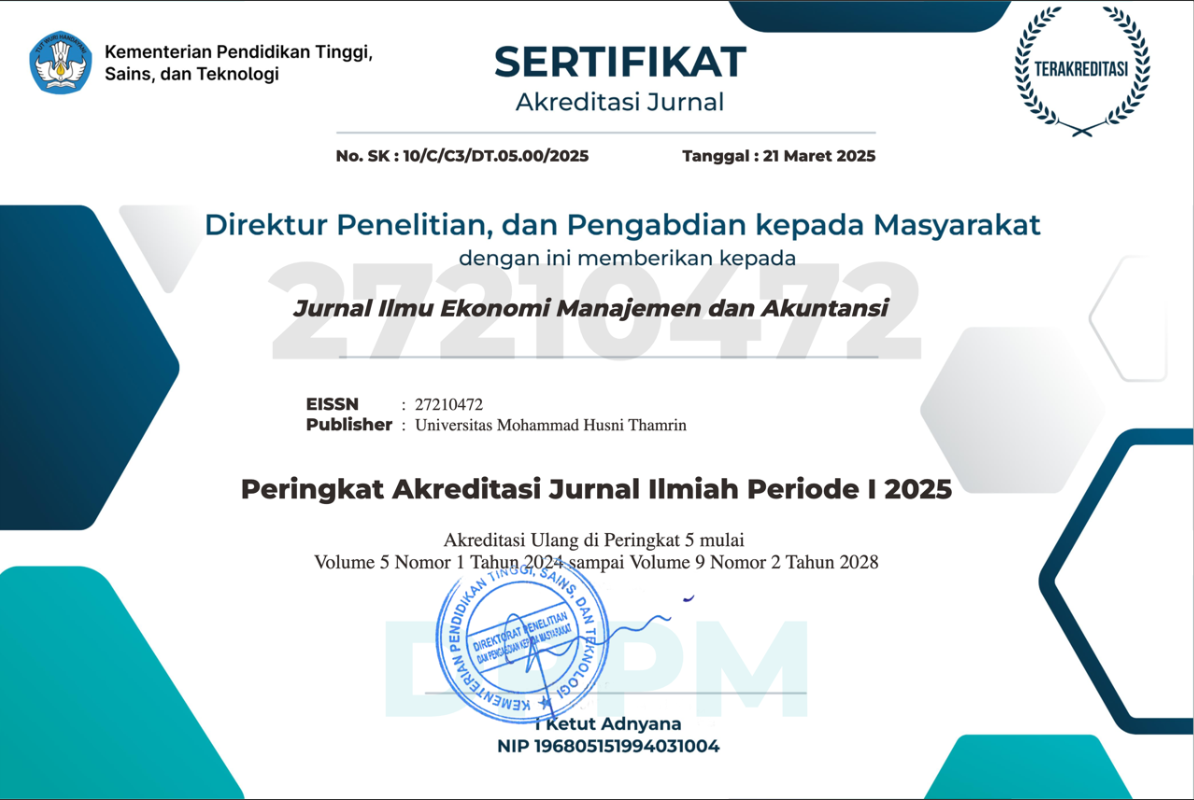The Effect of Loan Interest Expense on Net Profit at PT Summarecon Agung Tbk
DOI:
https://doi.org/10.37012/ileka.v6i1.2606Abstract
This study aims to analyze the effect of loan interest expense on net profit of PT Summarecon Agung Tbk in the period 2017 to 2024. In the capital-intensive property industry, the use of debt as a source of funding is common. However, increasing debt will result in interest expenses that can affect the company's financial performance, especially net profit. The data used in this study are loan expenses (financial costs) and net profit obtained from the company's financial statements. The simple linear regression method is used to test the relationship between the two variables. The results of the regression analysis show that there is an insignificant positive relationship between loan interest expense and net profit, with a coefficient of 0.4039 and a p-value of 0.3157. This indicates that every 1 unit increase in loan interest expense will increase net profit by 0.4039 units. In addition, the intercept value also has a high p-value (0.1931) indicating that other factors may also affect net profit. These findings indicate that interest expense is not the only factor that determines a company's net profit, and that external factors such as property market dynamics, monetary policy, and the company's internal operational strategy play a significant role. The low adjusted R-square value indicates that the independent variables in this study only explain a small part of the variation in net profit. The conclusion of this study is that loan interest expense can contribute to increasing net profit, but other external factors also need to be considered in the company's financial analysis.
Downloads
Published
Issue
Section
Citation Check
License
Copyright (c) 2025 Geraldine Eileen Alexandra, Josefina Aurelia Kurnia, Elizabeth Tiur Manurung

This work is licensed under a Creative Commons Attribution 4.0 International License.
Jurnal Ilmu Ekonomi Manajemen dan Akuntansi (ILEKA) Universitas Mohammad Husni Thamrin allows readers to read, download, copy, distribute, print, search, or link to the full texts of its articles and allow readers to use them for any other lawful purpose. The journal allows the author(s) to hold the copyright without restrictions. Finally, the journal allows the author(s) to retain publishing rights without restrictions Authors are allowed to archive their submitted article in an open access repository Authors are allowed to archive the final published article in an open access repository with an acknowledgment of its initial publication in this journal.

Jurnal Ilmu Ekonomi Manajemen Akuntansi (ILEKA) Mohammad Husni Thamrin is licensed under a Creative Commons Attribution 4.0 International License.











